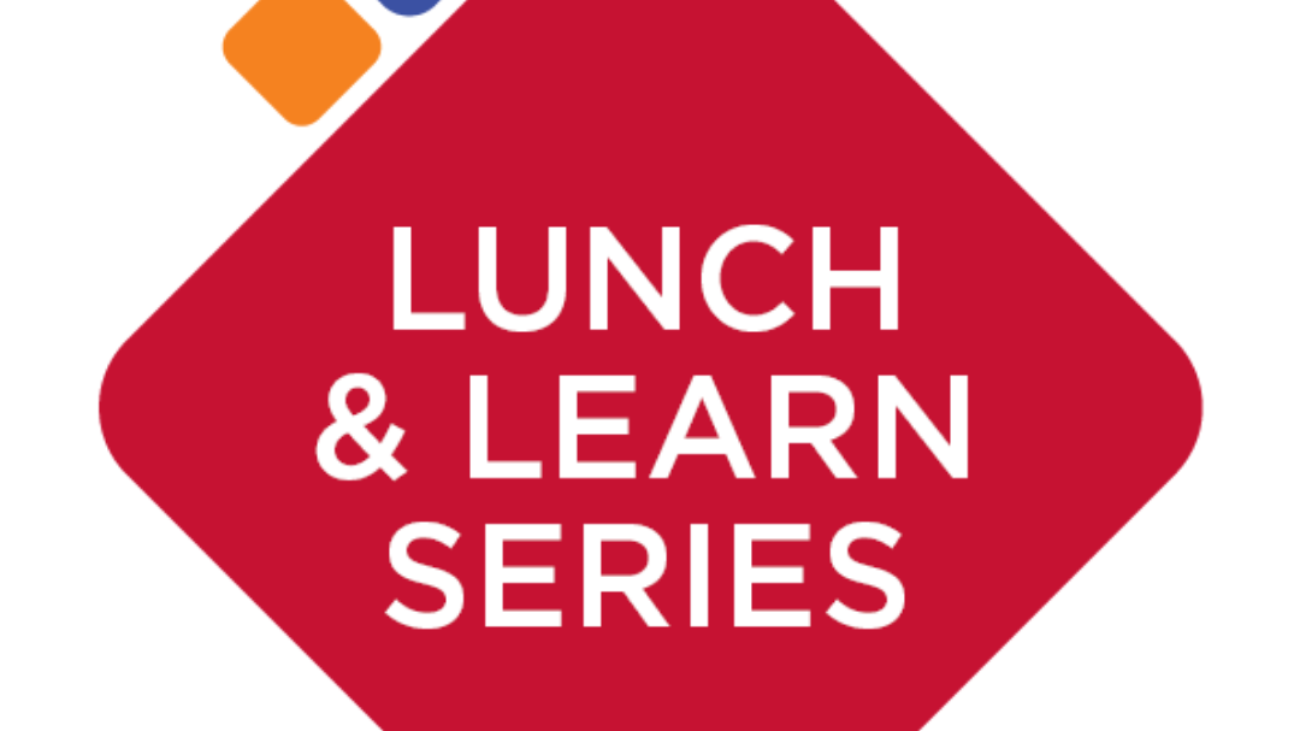Want to foster an inclusive culture? Let’s ask the right questions and take action together. This session will focus on shaping the pillars of a company culture that is not only impactful, but also inclusive. Learn more on how associations can better support a company culture that promotes diversity, equity, and belonging within an organization.
SIIA joins Multi Association Letter to the President on Canada’s International Commitments.
We write to you in advance of your upcoming visit to Ottawa to express our concerns about several measures that will undermine the ability of U.S. companies to fairly compete in the Canadian market. We urge you to raise these issues during your visit, with a view toward ensuring that Canada fully honors its international commitments.
The United States-Mexico-Canada Agreement (USMCA) was a signature bipartisan effort, and your Administration has rightly called USMCA enforcement a top priority. This is particularly true with respect to modernized enforcement mechanisms and a robust digital trade chapter. We strongly believe that the USMCA can raise standards in many areas – agricultural market access, digital trade, environmental standards, labor rights, and services access.
However, we are concerned that Canada is pursuing a number of problematic proposals and actions that could significantly limit the ability of U.S. companies to export their goods and services and fairly compete in the Canadian market. It is critical for the United States to hold Canada accountable to its USMCA commitments to ensure the continued success of this important agreement. Relatedly, Canada’s proposed policy approaches would impede ongoing efforts to drive North American economic competitiveness, including the North American Leaders’ Summit and the Americas Partnership for Economic Prosperity (APEP).
Read the full letter here.
2023 Neal Awards Finalists Reflect the Diverse and Changing World Around Us
 An amazing 215 finalists for the 2023 Neal Awards were named last week, and a quick look shouts that these are not your grandparents’ B2B awards. From a profile on Michelle Tran (pictured here) in Arizent’s Financial Planning to Haymarket’s Rare Care podcast to a Carbon Footprints Clean Up in Money-Media’s Agenda, these finalists scream here and now.
An amazing 215 finalists for the 2023 Neal Awards were named last week, and a quick look shouts that these are not your grandparents’ B2B awards. From a profile on Michelle Tran (pictured here) in Arizent’s Financial Planning to Haymarket’s Rare Care podcast to a Carbon Footprints Clean Up in Money-Media’s Agenda, these finalists scream here and now.
What’s most impressive about those finalists is the diversity and range of companies and topics. Almost 50 different media companies are represented as finalists this year! Topics range from Cryptocurrency to Global Cannabis to Bionic Vision to Norske Casino to Trucking’s Sustainability Journey and so many more.
Crain Communications leads the way with 21 finalists, followed by Industry Dive with 18, Zonda with 14, Winsight with 13, IEEE Media with 11 and Endeavor Business Media with 10. It’s also great to see some new names represented such as Morning Brew, New Hope Network, Citeline and AFIRE.
Visit here for a full list of the Neal Awards finalists.
The always-exciting, in-person Neal Awards ceremony at the New York Marriott Marquis will take place on Friday, April 21, 2023. (Reserve your tickets or table here.) A total of 59 winners will be announced at the ceremony, culminating in the Grand Neal Award, honoring the most outstanding entry from among the winners in all categories. A panel of 136 judges reviewed the finalists in three stages to select the winners in 24 categories.
(Sponsorship opportunities are also available. Download the prospectus and contact Weston Kalogeridis for more details.)
Here is a sampling of finalists in five of the categories:
Best DEI Coverage finalists include Arizent’s American Banker’s “DEI in Banking”; Crain’s Modern Healthcare’s “Policing and Health: Lessons From Minneapolis”; IEEE Spectrum’s “Nothing About Us With Us”; FleetOwner Endeavor’s “Women in Transportation; Utility Dive’s “Racism and Inequity in Electric Utilities”; “Stories of Antisemitism” from the Online Society for Human Resource Management; “With $1B at Stake, Clashes Emerge Over Highway Removal” from GovExec’s Route Fifty and Crain’s Staffing Industry Analysts’ “DE&I in the Workforce Solutions Ecosystem.”
Best Podcast finalists include: Society for Human Resource Management’s All Things Work Podcast; Realtor Magazine’s Drive Podcast; Questex’s Fierce Healthcare’s Podnosis; DTN/Progressive Farmer’s Field Posts; and Informa Markets’ Aviation Week & Space Technology’s Check 6 Podcast.
Best Profile Article finalists include: Lexipol’s FireRescue1’s “Las Vegas 5 Years Later”; Foundry’s CIO’s DevColor’s Cohort Approach to Uplifting Black IT Careers; Vestwell’s Michelle Tran Rarely Rests, Which Is Making a Difference for Women in Fintech from Arizent’s Financial Planning; and “With the Best People, ‘You’ll Never Lose’” from Endeavor’s Modern Tire Dealer.
Best Subject-Related Package finalists include: Women in the Glass Industry from Key Media & Research’s USGlass Magazine; The Restaurant Mental Health Toolkit from MTGMedia Group’s Plate; Killer in the Kitchen: Restaurants Face an Evolving Epidemic of Addiction from Winsight’s Restaurant Business; and Climate Smart Farming from DTN/Progressive Farmer.
Best Industry Coverage finalists include: Starbucks Union Gains Unprecedented Momentum from Restaurant Dive; Zonda’s ARCHITECT magazine’s The Game Changers Issue; FreightWaves’ timely Rail Coverage issue; and Winsight’s Restaurant Business’s Ghost Kitchen Problems.
Again, for a full list of the 2023 Neal Award finalists, please visit here.
‘The Similarity Is People Want Autonomy’; Experts Offer Blueprint for Remote World
 “The crystal ball is cloudy and clear,” National Journal President Kevin Turpin told us at BIMS in an insightful Future of Work panel. “What’s clear is we’re in a period of change. As a leader, you have to operate more in empathy and truth, and make choices [from those places]. Work can get done in different ways, but you still have to do the work.”
“The crystal ball is cloudy and clear,” National Journal President Kevin Turpin told us at BIMS in an insightful Future of Work panel. “What’s clear is we’re in a period of change. As a leader, you have to operate more in empathy and truth, and make choices [from those places]. Work can get done in different ways, but you still have to do the work.”
“We’ve always changed,” said another panelist, Nick Schacht, chief global development officer, SHRM. “Some of us have been connecting from the road for 30 years. You learn to use new tools. We can hold on to things that we know. Look at the range of generations; there’s like six generations now in the workplace.
“Flexibility is one key thing. At SHRM, we’re doing three days in office, two at home. Adults will be adults. If you have a doctor’s appointment, go to that. We can add flexibility. But what is it particularly that young people want?”
“People under 30, or even 27, they have very specific ideas about where they want to work,” Turpin added, pointing to the challenges of recruitment and retention. Skills development is crucial. Can that be done remotely? “They’re trying to be a professional.” Can that be fully accomplished without in-person interaction?
 “Each generation looks at something differently,” Terri Travis, Industry Dive’s VP of human resources, and the third panelist, said. “The similarity is that people want autonomy.”
“Each generation looks at something differently,” Terri Travis, Industry Dive’s VP of human resources, and the third panelist, said. “The similarity is that people want autonomy.”
Here are eight tips from this esteemed panel and other sources for negotiating this brave new remote world:
Know your time zones and cultures. “Workplaces will need to remain flexible to recruit and retain team members,” Travis said. “Video calls, messaging and other engagement platforms, or other technologies, will be an integral part for companies to keep a strong level of employee engagement with their teams spread across the country and globally. We have expanded our team internationally, and team members have the flexibility to work from where it best suits their needs. But along with this comes more consideration needed for local time zones, regional and international workplace culture and habits, and communication.”
Be intentional. “Organizations need to take an intentional approach,” wrote Washington Post tech at work writer Danielle Abril. “That means creating onboarding processes that offer several points of connection and give new employees the chance to meet both their co-workers and other people across the organization. And when employees join, managers should make sure new hires feel like they have some ownership in the company’s culture.”
Widen your hiring pool. “The world has changed,” Anne Holland, co-founder of MJBiz, sold to Emerald for $120 million, told me. MJBiz employees used to have to come to the office 10 am to 3 pm Tuesday to Friday. That seems eons ago. “After the first month [of the pandemic, working virtually] felt normal and natural… and we were able to go get the best of the best.” Turpin agreed, with qualifications. “We can hire better talent than we could before. [But] where people work from now matters, given the tax laws. We now have a 135-person business registered in 12 states. Taxes is one thing but then being up on labor laws is another. It brings a level of risk…”
Design work around people. “In essence, we need to stop designing work around location, and start designing work around human behavior,” Alexia Cambon of Gartner wrote last year. “Employees will work better, stay at their organization longer and keep healthier if they are placed at the center of work design. This is what we should be asking ourselves: If 9-5 had never been invented; if ‘office’ were a foreign term; if the concept of a meeting sounded like gibberish—in short, if today were day one of the history of work—how would you design how you work?”
DEI must have its place. “Diversity is here; it’s not just the color of our skin, but experiences,” Turpin said. “It’s something we have to embrace. It can’t just be something we’re checking the boxes on. The majority of high school grads last year were people of color. It has to be infused into how we’re running our businesses.”
Create virtual “connection points” for employees. “Is there a platform in which employees are encouraged to chat with each other?” Abril asked. “Are there regular calls? Are there opportunities to team up with employees from different teams for something that might resemble a virtual water cooler?” Added Travis: “The shift to remote work gave employees a lot more power and control. If companies do not provide flexible workplace environments, they will not be competitive in the market and will suffer from a retention perspective. We have already seen this with our recruiting efforts.”
Consider structuring unstructured time, said Tsedal Neeley, a Harvard Business School professor and author of Remote Work Revolution: Succeeding from Anywhere. Perhaps “starting every meeting with some personal connection time, versus jumping right into the subject matter at hand.” He suggested that 10-15% of meeting time could be allowed for the group to chat freely. “Starting in a personal way increases group cohesion and group performance. You have to build in the informal to get to know one another.”
Don’t rest on your laurels. “We’re going back to the office two days a week,” Travis said. The most important question for her is, “’What is the purpose of going to the office?’ We’re trying to take the best of both worlds. We had a great onboarding process onsite and now pivoted to a great onboard experience remotely. You can’t rest on your laurels on how you execute those… You have to make sure we’re setting [frontline managers] up for success.”
















